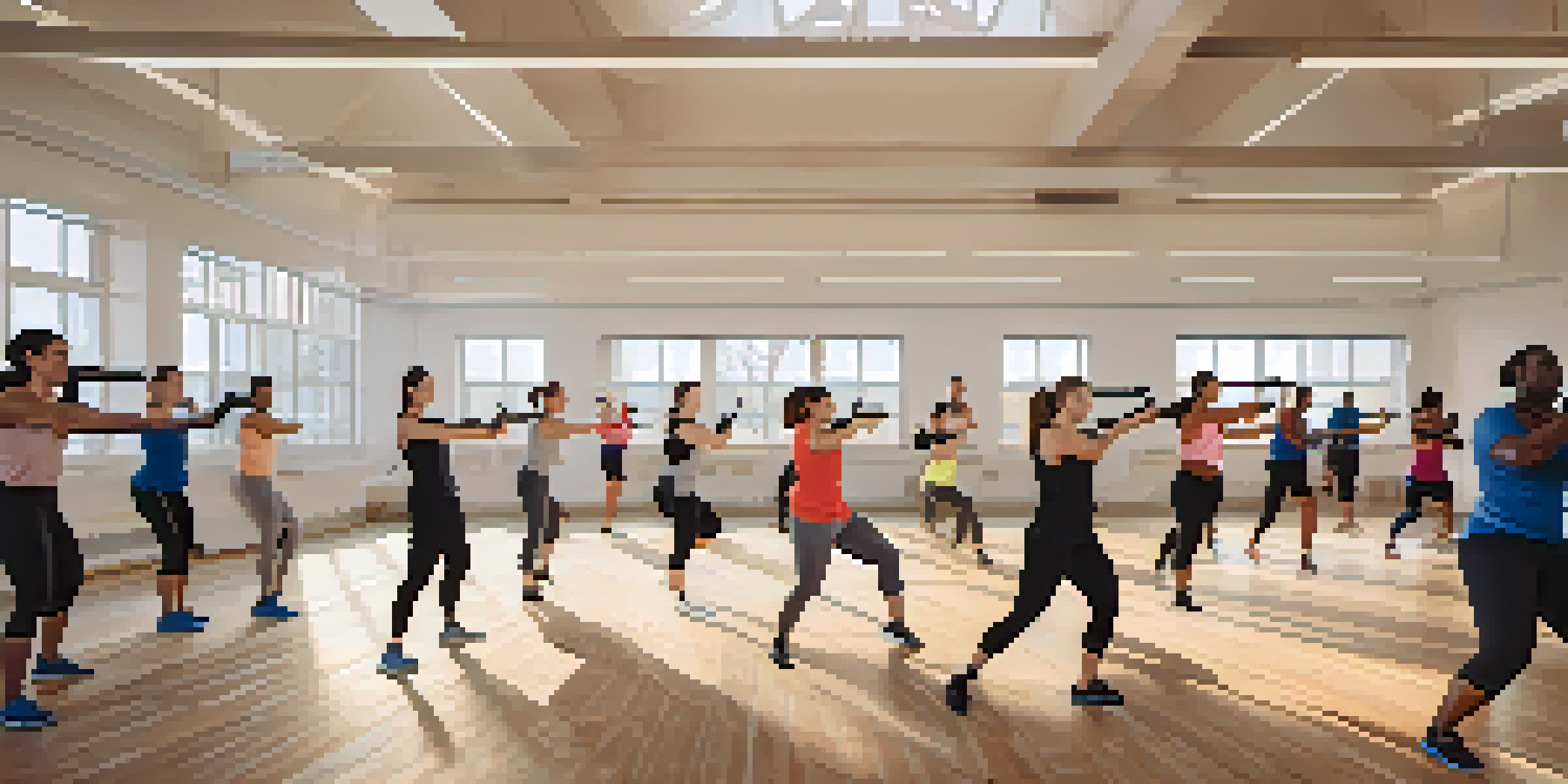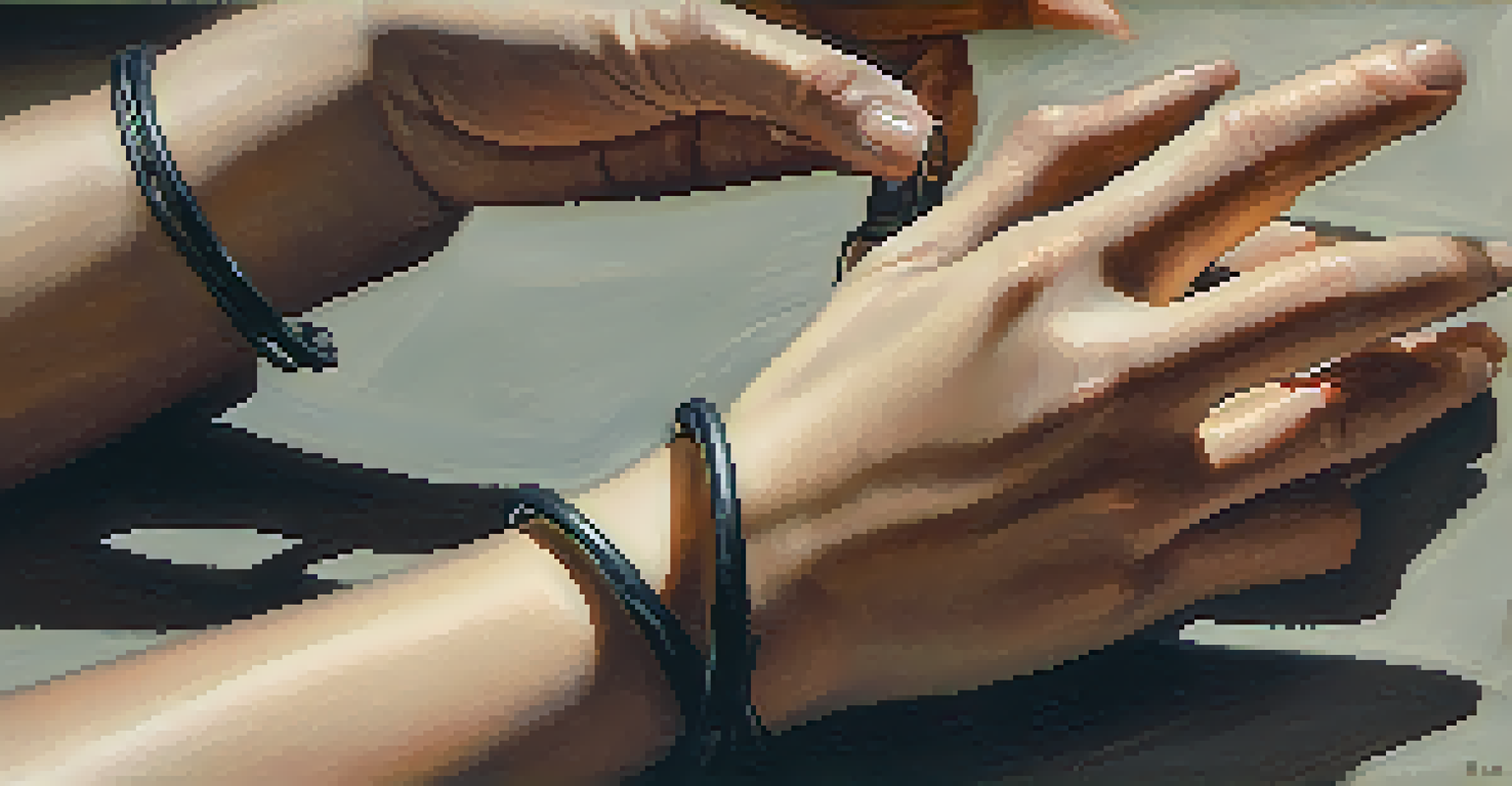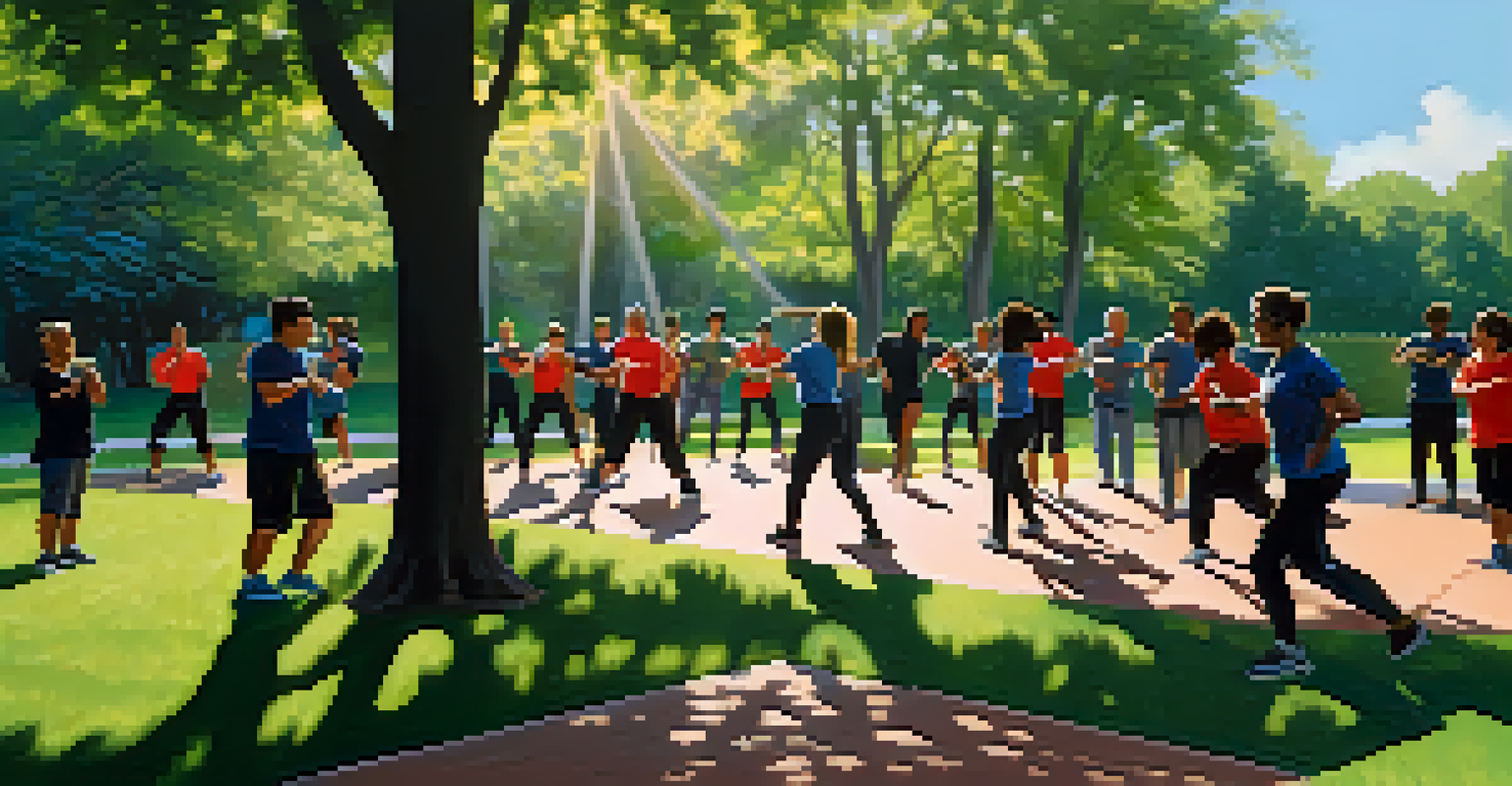The Role of Self Defense in Redefining Victimhood

Understanding Victimhood in Today's Society
Victimhood often carries a heavy stigma, creating a narrative that can limit individuals' agency. In today's society, many are re-evaluating what it means to be a victim, particularly in contexts like domestic violence or assault. This shift in perspective encourages a more nuanced understanding of experiences, allowing for a broader spectrum of responses and emotions. As we delve into the complexities of victimhood, it’s essential to recognize that each story is unique and deserves to be heard.
The greatest weapon against stress is our ability to choose one thought over another.
Traditionally, victims have been viewed through a lens of helplessness, which can often inhibit their ability to reclaim their power. However, as conversations around self-defense gain traction, there’s a growing recognition that individuals can take proactive steps to protect themselves. This empowerment is a crucial element in redefining how we perceive victimhood, as it promotes resilience and agency rather than passivity.
By embracing self-defense as a valid response to violence, we open the door to discussing empowerment and personal strength. The idea that victims can actively resist their circumstances not only changes their narrative but also influences societal attitudes. This evolution in thinking invites more inclusive conversations about trauma, healing, and the paths individuals choose to take after experiencing violence.
The Intersection of Self-Defense and Empowerment
Self-defense is not merely a physical act; it's a profound statement of self-empowerment. When individuals learn self-defense techniques, they gain confidence in their ability to protect themselves, which can profoundly change their mindset. This newfound confidence often translates into other areas of their lives, fostering a sense of control that may have been lost. As a result, individuals begin to reclaim their narratives, viewing themselves as active participants rather than passive victims.

Moreover, self-defense training can foster a sense of community among participants, creating networks of support and shared experiences. These connections can be invaluable for individuals who have faced similar challenges, encouraging open dialogue about their experiences. By sharing their stories within these communities, they can redefine their identities beyond victimhood, embracing their strength and resilience.
Empowerment Through Self-Defense
Self-defense training fosters confidence and resilience, allowing individuals to reclaim their narratives and view themselves as active participants in their safety.
The empowerment gained through self-defense also challenges societal norms regarding vulnerability. Instead of seeing themselves as weak or defenseless, individuals learn to assert their rights and boundaries. This shift in mindset can be transformative, promoting a culture where personal safety is prioritized and individuals feel equipped to confront potential threats.
Challenging Traditional Narratives of Victimhood
Traditional narratives often paint victims as passive and helpless, but self-defense challenges this stereotype. By showcasing individuals who have successfully defended themselves, we begin to dismantle the notion that victimhood equates to powerlessness. This shift not only empowers those who have experienced violence but also encourages society to rethink its approach to these issues.
You can't be brave if you've only had wonderful things happen to you.
Through education and awareness, self-defense can help to debunk myths surrounding victimhood, such as the idea that victims are to blame for their circumstances. When people recognize that anyone can be a target, regardless of their actions, it fosters empathy and understanding. This broader perspective allows for more constructive conversations about prevention and support, ultimately benefiting those affected by violence.
As we challenge these traditional narratives, we also create space for healing and growth. Individuals who embrace self-defense often find solace in their ability to take control of their lives. This process of redefining their experiences can lead to empowerment, paving the way for a future where victimhood is seen through a more complex and compassionate lens.
The Psychological Impact of Self-Defense Training
Engaging in self-defense training can have significant psychological benefits for individuals who have experienced trauma. The act of learning to defend oneself fosters resilience and helps to rebuild self-esteem, which may have been shattered by past experiences. This psychological reinforcement can be crucial in the healing journey, providing a sense of control over one's life and circumstances.
Moreover, self-defense training often includes mental preparedness, teaching individuals how to assess and respond to threatening situations. This proactive approach not only equips them with skills but also instills a sense of confidence that can permeate their daily lives. The more prepared they feel, the less likely they are to succumb to feelings of fear or helplessness.
Challenging Victimhood Narratives
By showcasing individuals who have defended themselves, we can dismantle the stereotype of victimhood as powerlessness and promote a more nuanced understanding of trauma.
As individuals grow in confidence through training, they often report improved mental health and well-being. This newfound strength can lead to reduced anxiety and a greater sense of security in their environments. Ultimately, the psychological impact of self-defense extends beyond the physical aspect, transforming how individuals view themselves and their capabilities.
Cultural Perspectives on Self-Defense and Victimhood
Cultural attitudes towards self-defense and victimhood vary widely across societies, influencing how individuals perceive their own experiences. In some cultures, self-defense is celebrated as a heroic act, while in others, it may be stigmatized or misunderstood. Understanding these cultural nuances is essential for promoting effective self-defense programs and support systems that resonate with diverse communities.
In cultures that prioritize collectivism, the act of self-defense may also be seen as a way to protect one's family or community. This broader view can empower individuals to step forward and take action, knowing they are contributing to the safety of their loved ones. Such cultural frames can redefine victimhood, emphasizing the importance of community support and collective resilience.
By engaging with different cultural perspectives, we can create more inclusive conversations around self-defense and victimhood. This engagement allows for the sharing of diverse experiences and solutions, ultimately enriching our understanding of these complex issues. As we foster dialogue across cultural lines, we encourage a more holistic approach to empowerment and healing.
Legal Implications of Self-Defense
The legal landscape surrounding self-defense is complex and varies significantly across different jurisdictions. Understanding the laws that govern self-defense can empower individuals to make informed decisions about their rights and options during threatening situations. This knowledge is crucial for redefining victimhood, as it reinforces the idea that individuals have the right to protect themselves.
However, navigating the legal system can be daunting, especially for those who have experienced trauma. Many may feel overwhelmed by the potential consequences of their actions, leading to further feelings of victimization. It is essential for communities to provide resources and education about self-defense laws to help individuals feel empowered rather than intimidated.
Cultural Impact on Self-Defense Views
Cultural attitudes towards self-defense shape how individuals perceive their experiences, emphasizing the importance of community support in redefining victimhood.
By fostering a better understanding of self-defense laws, we can support individuals in reclaiming their narratives. When people know their rights, they are more likely to act confidently and decisively in dangerous situations. Ultimately, the legal implications of self-defense play a crucial role in how society perceives victimhood and the agency of individuals.
Moving Forward: Redefining Victimhood through Action
As we explore the role of self-defense in redefining victimhood, it becomes clear that action is a vital component of this transformation. Encouraging individuals to engage in self-defense training not only empowers them but also shifts societal perceptions about what it means to be a victim. This proactive approach can inspire others to take control of their narratives and seek support.
Community programs that promote self-defense and education can create safe spaces for individuals to share their experiences and learn from one another. By fostering a culture of empowerment, we can help break the cycle of victimization and encourage resilience. These collective efforts can lead to a more supportive environment for those affected by violence.

Ultimately, redefining victimhood through self-defense is about embracing a mindset of empowerment and agency. When individuals recognize their ability to protect themselves and assert their rights, they begin to rewrite their stories. This change not only benefits the individuals involved but also fosters a more compassionate and understanding society as a whole.